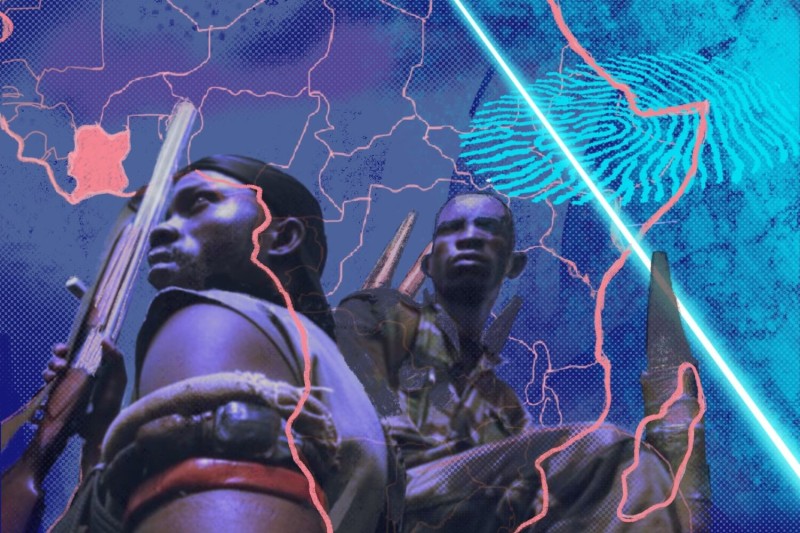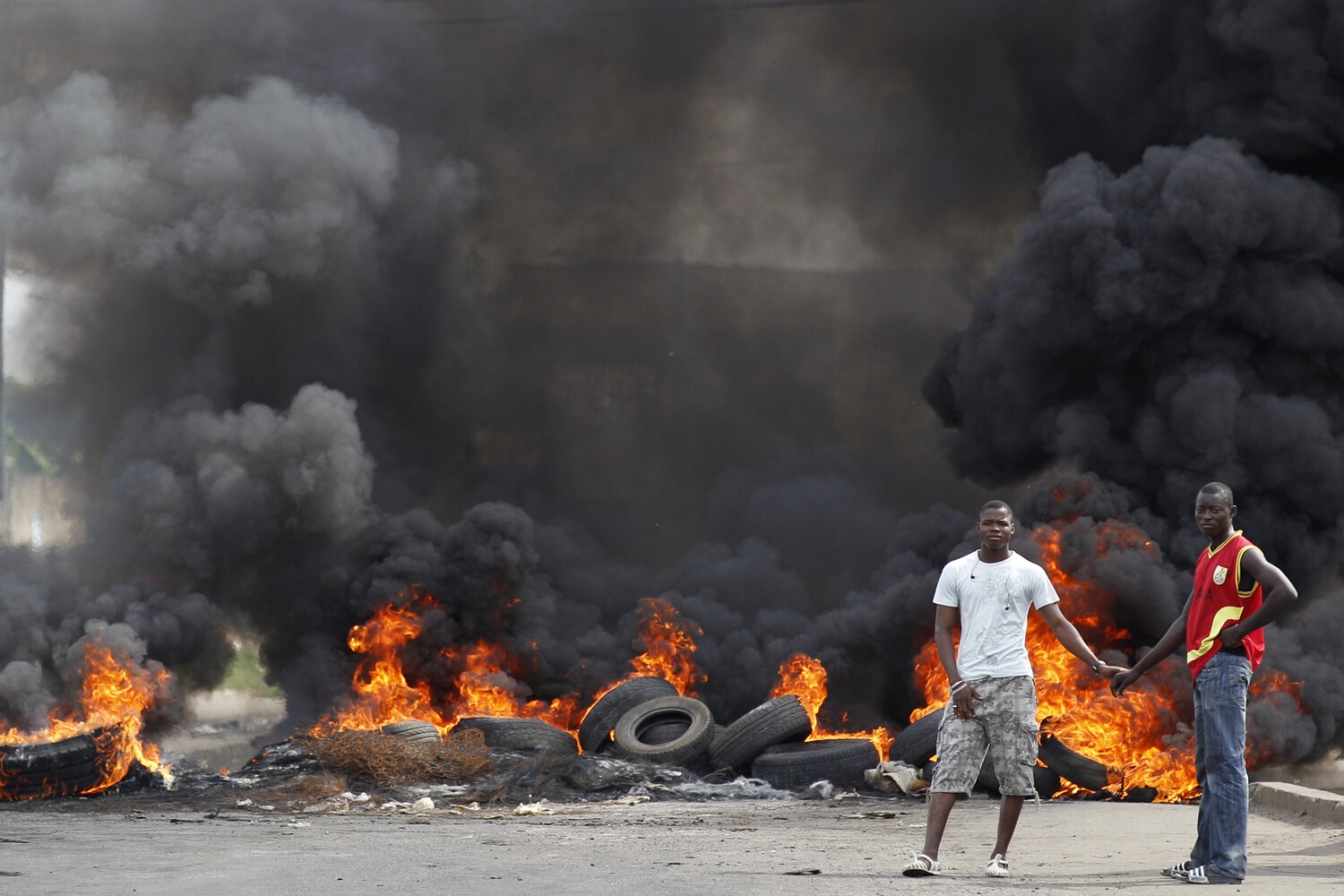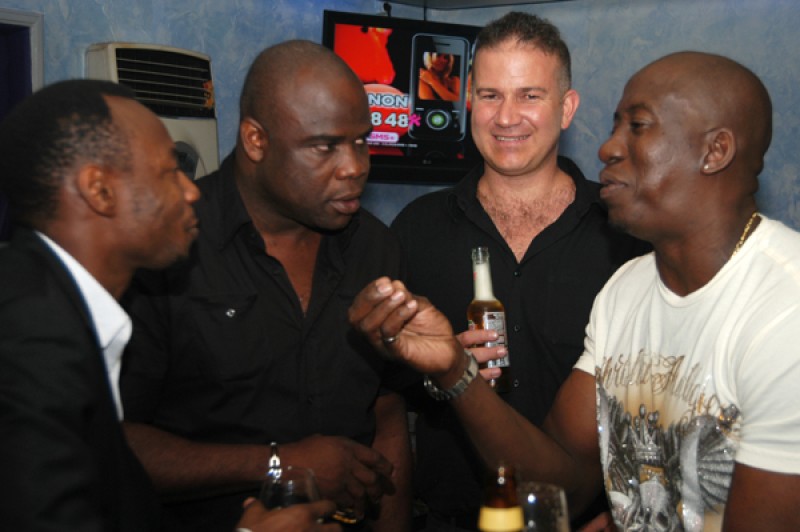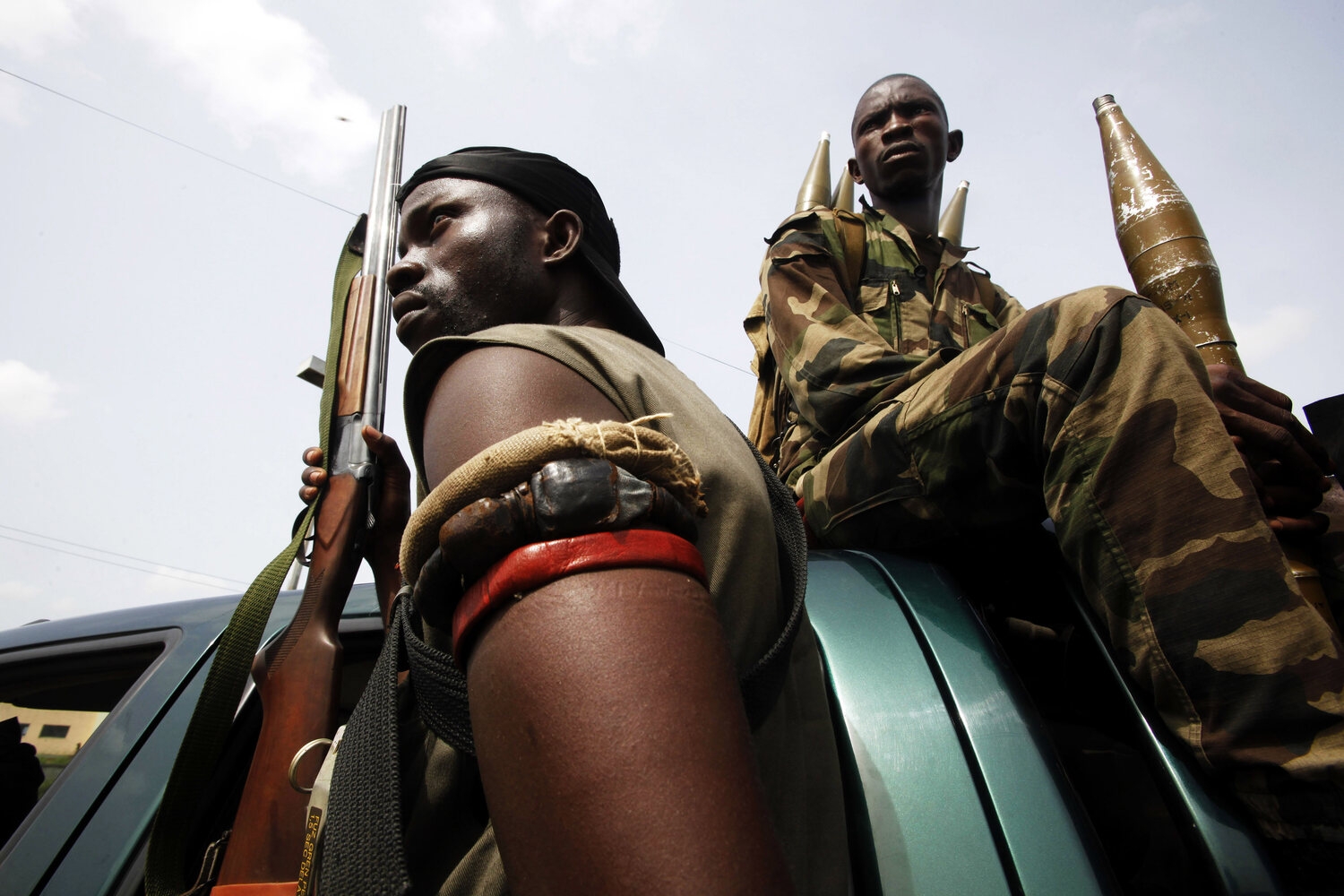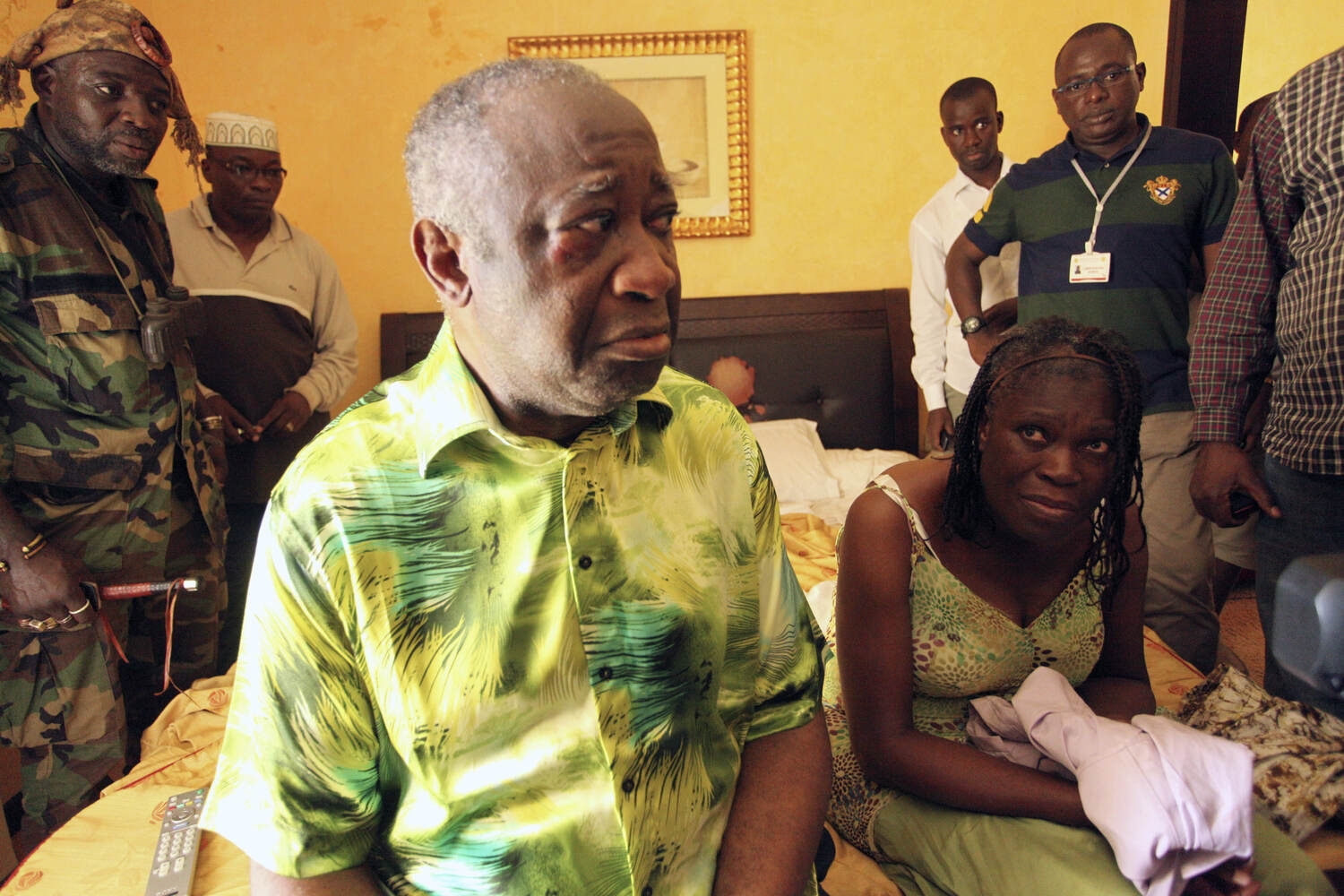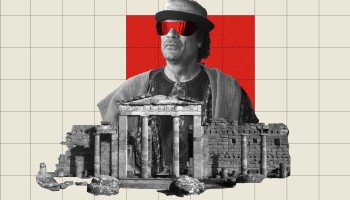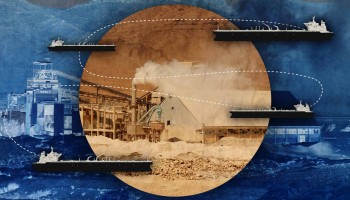By the beginning of 2011, the fallout from Ivory Coast’s disputed presidential election was turning ugly.
Violence had flared across the West African country since President Laurent Gbagbo rejected the result of a second-round presidential poll that was won by his rival, Alassane Dramane Ouattara, in late November 2010.
The international community was piling pressure on Gbagbo. He ignored calls from the United Nations’ then-Secretary-General Ban Ki Moon to step down. In January 2011, the European Union froze his family's assets and sanctioned dozens of people and companies that supported his regime.
As Ivory Coast spiraled into its second civil war in less than a decade — a conflict which would claim 3,000 civilian lives — Gbagbo's military chief of staff warned the army "didn't have enough munitions to fight for three days.”
Squeezed for cash and in desperate need of weapons, Gbagbo turned to two companies that had helped him fund his campaign to become president through a shady oil deal: Gunvor, one of the world’s biggest oil traders, and Brussels-based biometric document-maker Semlex.
It was a risky venture, as Ivory Coast was under a U.N. arms embargo at the time. But despite the dangers, a new investigation by OCCRP shows Gunvor and Semlex were ready and willing to broker weapons sales in return for a slice of Ivory Coast’s oil wealth.
Confidential documents, including more than 100,000 leaked emails, contracts, and banking records shared with OCCRP and Belgium-based Médor, detail how the companies tried to help source weapons for Gbagbo’s regime. They also show Semlex signed a contract with a Tunisian company owned by two notorious arms dealers, both of whom were cited by the U.N. for violating sanctions by supplying the ex-president’s forces during Ivory Coast’s civil war.
A key player in the deal was Olivier Bazin, a Frenchman with a criminal history who acted as a fixer for both Gunvor and Semlex in Ivory Coast. Confidential documents show he was in frequent contact with senior Gunvor officials, as well as known arms dealers.
At that time Gunvor was co-owned by Swedish billionaire Torbjörn Törnqvist, who has spent years trying to open up Africa’s oil resources, and Gennady Timchenko, a Russian oligarch with close ties to the Kremlin.
Andrew Feinstein, author of “Shadow World: Inside the Global Arms Trade,” said it is common for oil to be traded for arms, both legally and illegally.
“Gunvor's apparent readiness to provide a then-sanctioned regime with cash used for arms — and its help in enabling or colluding access to arms through disreputable arms traders ... is proof of the shady techniques used to lock down cheaper oil for vast profit, regardless of the true cost,” Feinstein said.
Gunvor appears to have used its relationship with Semlex to hide the fact it was working hand-in-hand with known arms dealers, he said. The network that the two companies created is a good example of "the various opaque layers that arms deals and dealers may use to disguise their activities," said Feinstein.
No one from Semlex has ever been charged for any corrupt dealings in Ivory Coast. In 2018, Ouattara’s government awarded the biometric ID maker a 700-million-euro contract to produce passports for the next 10 years.
Gunvor was fined a record $95 million in Switzerland last year after it was found criminally liable for not stopping its employees from bribing officials in Republic of Congo and Ivory Coast. In a statement, the Swiss attorney general said it “therefore seems that Gunvor accepted that a risk of corruption was inherent to the commercial activity of the company,” though evidence from the case was sealed. Gunvor has since moved its Africa desk from Geneva, where it is headquartered, to less-regulated Dubai, according to investigative outlet Public Eye.
Gunvor’s director of corporate affairs, Seth Pietras, denied all allegations of wrongdoing. He said the company had been introduced to Semlex and Bazin by a former Gunvor employee who has since been sentenced by a Swiss court on bribery charges, and that it maintains no current relationship with either party.
“Gunvor has absolutely no knowledge of, dealings with, or records of any of the ‘mercenaries,’ no connection, prior or otherwise, with the companies or entities you cite,” Pietras said.
Semlex did not respond to questions sent by OCCRP. Bazin did not respond to repeated requests for comment. Kadet Bertin, Gbagbo's all-powerful security adviser at the time of the events, told Jeune Afrique he knew nothing of Gunvor and Semlex, and declined to answer questions.
‘The Equipment We Need’
In early 2011, as the conflict in Ivory Coast intensified, a small group of businessmen met in a private room in the five-star Mandarin Hotel in Geneva.
A representative of Gunvor attended the meeting alongside Bazin, who worked for Semlex in Ivory Coast at the time, and another Frenchman named Robert Montoya, the head of an international arms smuggling network that had supplied Gbagbo as far back as the country’s 2002-2004 civil war.
A source with knowledge of the proceedings, who asked to remain anonymous, declined to describe their discussions in detail. But confidential correspondence shows an adviser to Gbagbo had written to Bazin just weeks before, on January 24, listing 4.5 million euros ($6.3 million) worth of weapons he wanted to procure.
“Here is the equipment we need urgently,” wrote Aubert Zohore, an adviser to Gbagbo at the time, sharing a list that included nearly 7 million rounds of ammunition, 6,000 rocket-propelled grenades and 300 smoke grenades.
Bazin forwarded the message to Gunvor two days later, writing: “As discussed, I am sending you the list of equipment requested by the [President’s representative] from the Russians.”
A source with knowledge of the deal alleged the weapons were paid for and some of them were delivered, but the deal was disrupted when Gbagbo was arrested in April 2011.
"President Gbagbo requested Bazin obtain the support of Gunvor to purchase weapons in Russia,” the source said. “Bazin and Montoya involved Gunvor in the arms deal and both of them met with Gunvor in Geneva for this purpose.”
A few days after Zohore’s message, Bazin sent Semlex’s CEO, Albert Karaziwan, details to be used in an invoice back-dated to January 12 for $1.6 million involving a company co-owned by Montoya named Caminex.
Caminex was described as a Tunisian oil trader. But reporters found no record the company or its directors are allowed to conduct oil-related transactions in the country. They also confirmed Caminex is not authorized to import or export crude oil from Tunisia.
Instead Caminex — sometimes spelled as Camimex in an apparent attempt to disguise its activities — appears to be a vehicle for payments to its arms-dealing owners: Montoya and another French mercenary named Frédéric Lafont. The U.N. has cited both men for violating sanctions by selling weapons to Gbagbo’s regime. In France, which colonized Ivory Coast from 1893 until 1960, they are being investigated for crimes against humanity and money laundering.
A Paris prosecutor confirmed the investigation, but declined to comment on the case, citing confidentiality rules.
A Tale of Two French Mercenaries
When Frédéric Lafont, a former French legionnaire, decided to move into the private security industry in the early 2000s, he chose Ivory Coast as his base.
U.N. monitors allege Caminex is one of several companies the men used to move money. Montoya and Lafont used “a complex structure of companies based in Côte d’Ivoire, Tunisia and Latvia, which allowed them to violate consistently the sanctions regime imposed on Côte d’Ivoire,” they wrote in a 2012 report for the Security Council.
In total, the monitors estimate Montoya’s network sold Ivory Coast’s government at least $16.3 million of weapons and related material between 2006 and 2010, including thousands of grenades of the same kind distributed to pro-Gbagbo militias during the crisis that followed the 2010 election. In early 2011, they say Montoya even “organized the arrival and the stay of a group of seven technicians charged with the repair and maintenance of [an] Mi-24 helicopter,” helped by Gbagbo’s Republican Guard.
The U.N. report never mentions Gunvor by name. But in an annex titled “Request for an ‘oil for arms’ deal,” the monitors cite a 2010 email from a Gunvor employee discussing buying two extra cargoes of Ivorian crude at a cost of $106 million.
OCCRP was unable to confirm whether Semlex transferred the $1.6 million to Caminex in January 2011 to buy weapons requested by Gbagbo’s regime. Confidential documents show Semlex did transfer $1.2 million to Gunvor’s Dutch branch in 2010, again ostensibly for oil payments, although the true reason is unclear.
Lafont fled Ivory Coast for Togo, where Montoya’s company was based, after Gbagbo was arrested and deposed in April 2011. During the post-election crisis, financial documents relating to Lafont's companies were sent to Togo on flights operated by Sophia Airlines, a carrier owned by his wife, according to U.N. monitors. It’s unclear if Caminex is still operating, though a bank account connected to the company is active.
Lafont’s lawyer at the time, Gilbert Collard, had stated repeatedly that his client is not guilty of any crimes.
Gunvor, meanwhile, kept buying oil from the Gbagbo regime even after the EU sanctioned the state oil company, Petroci. During the final weeks of the civil war, in April 2011, a leaked email shows Gunvor bought some 1.6 million barrels of crude, worth an estimated $160 million. Semlex received a payment of $2 per barrel for its role in the deal, more than $3.1 million in total.
Gunvor spokesperson Pietras denied all allegations of wrongdoing. A spokesperson for Petroci did not respond to reporters’ questions.
Building a War Chest
Gunvor and Semlex already had a lucrative relationship with Gbagbo’s regime when the embattled president's aide turned to them to source weapons.
Gunvor had been working with Semlex in Ivory Coast since at least March 2008, when it signed a one-year agreement with its local branch. In Semlex, Gunvor found a useful fixer with a wide array of political contacts across Africa, where it was expanding at the time, while Semlex was rewarded handsomely for setting up Gunvor’s oil deals.
In June 2008, the two companies partnered on their first known deal, to buy 630,000 barrels of crude oil from Ivory Coast’s Espoir oil field, earning Semlex a $790,000 commission for arranging the purchase. Then in November, Bazin sent Semlex an invoice for 160,000 euros ($200,000) for “prospecting and procedures for your account” in Ivory Coast.
Gunvor formalized its relationship with Semlex in March the following year, with an agreement authorizing Semlex to buy oil on Gunvor’s behalf. The same day, Semlex appointed Bazin as its representative in Ivory Coast.
’Colonel Mario’
Soon after, leaked documents show Gunvor signed a contract to buy $90 million of oil from Petroci. That price itself was steeply discounted to less than one third of the international oil price at the time, partly because the Swiss company agreed to pay up front. Paperwork seen by OCCRP shows that French bank Credit Agricole backed the contract. According to Africa Intelligence, Gunvor did another equivalent-value deal with Ivory Coast around the same time.
The source close to the deal who asked not to be named said Bazin lobbied Gbagbo to sign the contract, arguing he needed it to build a warchest to finance his 2010 presidential campaign and, if it came to it, pay for mercenaries and arms.
“In 2009, Bazin convinced Gbagbo to accept this deal so he could collect some cash ahead of the coming elections,” the source said.
Bazin has never been charged with any crimes relating to Gunvor’s African deals. But court documents allege he was a key player in Ivory Coast, coordinating with local officials and “supervis[ing] different oil contracts and the delivery of oil.”
In March 2010, seven months ahead of Ivory Coast’s presidential election, Semlex also signed a deal with Caminex. The agreement, which was ostensibly to trade oil with Tunisia, features no names from Semlex, and the signature of the representative of Caminex is incomprehensible.
A Tunisian government official who reviewed the terms said it looked suspicious, as it included a lucrative consulting fee but omitted crucial details, such as the volume of oil being purchased. The official, who asked not to be named because he was not authorized to speak to the press, said the deal seemed “better suited to Saudi Arabia, not Tunisia’s small and restricted environment.”
Montoya, Lafont, and Bazin could not be reached for comment.
Hedging Their Bets
As Ouattara’s forces started to gain the upper hand in Ivory Coast’s civil war, in part due to Gbagbo's lack of resources and weapons, it seemed that Gunvor had backed the wrong horse. But OCCRP’s investigation shows the oil merchant was already hedging its bets.
In January 2011, when it was still receiving oil from Gbagbo’s regime, Gunvor also signed a separate deal to buy crude with new partners on the opposite side of the civil war: Adama Toungara, Ivory Coast’s former Minister of Petroleum, and key staff at state oil company Petroci.
The deal appears to have been activated when Gbagbo was arrested that April. The following month, Gunvor began paying officials from Ivory Coast’s new government through a company called Belisha Capital, based in the tax haven of Saint Vincent and the Grenadines. Court records show Belisha Capital is owned by Adama Kamara, who a source with knowledge of the family said was Toungara’s nephew.
In one invoice dated May 15, 2011, Belisha requested $1.5 million from Gunvor’s Dutch branch as “profit sharing” from crude that had been sold the previous month. Bazin made further cash payments of an undisclosed amount to Petroci staff between 2011 and 2013, court records show.
Money continued to flow between Gbagbo’s regime, Semlex, and Gunvor through various bank accounts and companies until June 2011. That month, Semlex made what appears to be a final $300,000 payment to one of its shell companies, registered in Switzerland, using the reference “Contract: Gunvor – Semlex”.
Court documents obtained by OCCRP describe Gunvor as "very close" to Gbagbo's regime. But testimony given in court shows the oil trader was also lobbying the new government for access to oil behind the scenes, using its relationship with Toungara and Kamara.
Massere Toure, spokesperson for Ivory Coast’s presidency and President Ouattara’s niece, told OCCRP the current administration had no records of what had occurred when Gbagbo was in power, and ignored questions about payments to government officials from Belisha Capital after he was deposed.
Kamara told reporters he did not wish to provide details of his contact with Gunvor during the post electoral crisis, saying they were covered by attorney-client privilege.
St Vincent Trust Company, which administered Belisha Capital, opened emails from reporters, but did not respond to them.
Semlex emerged unscathed from the episode. In 2018, the company won a 700-million-euro contract to produce 32 million passports for the country. Semlex did not respond to questions sent by OCCRP.
Gunvor stopped trading Ivorian oil in 2016. The company denied all allegations.
“Gunvor would never enter into a deal in which weapons consisted as an aspect of the transaction. That was true then, it is true now,” said Pietras, its director of corporate affairs.
“To claim or insinuate that Gunvor knowingly entered into a deal in which weapons played a role is entirely disingenuous and has the potential to be damaging for Gunvor.”
Additional reporting by Philippe Engels (Medor) and Walid Mejri (Al Qatiba).
